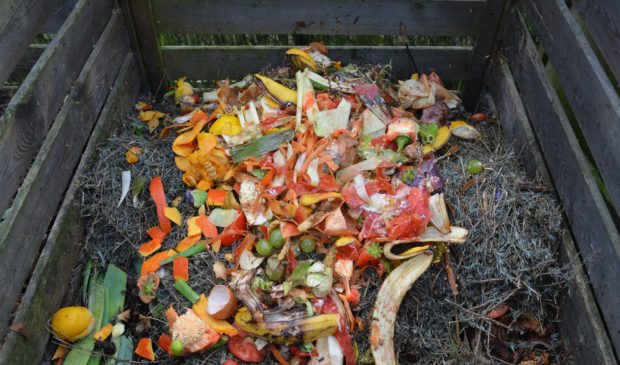Push to expand city composting continues
Wednesday, July 20, 2016 by
Jack Craver Austin has made major progress in its efforts to reduce the amount of trash it sends to landfills, but the city will have to make a big change if it wants to realize the ambitious goals it has set through its Zero Waste initiative.
Current recycling efforts have succeeded in diverting 43 percent of the city’s waste from landfills, according to Bob Gedert, director of Austin Resource Recovery. That’s a big improvement over past years, he told the Austin Monitor, but the progress appears to have hit a plateau over the last two or three years.
While far fewer cans, bottles and paper bags are heading to landfills, that’s still where the vast majority of the city’s food waste goes.
That could change, however, if City Council approves an upcoming budget request by ARR to implement a citywide composting program over the next four years. The program has been tested through a pilot program that began three-and-a-half years ago and now involves roughly 14,000 households throughout the city.
The plan that Council will vote on during the budget process calls for a four-year rollout of the program, which will be funded by incremental increases in the monthly fees that all residents of single-family homes, duplexes, triplexes and quadplexes pay for garbage collection. (Those who live in larger apartment buildings are not served by the city but by private trash collectors, and will not receive or pay for the new service.)
The city already collects yard clippings and leaves that customers put on the curb in paper bags. If the composting program is implemented, customers will combine both yard waste and food waste into green bins the city will provide.
Council will technically be asked only to approve the first year of the program, where 39,000 more customers will receive a green container for yard trimmings and other organic waste, including food. But all city customers, whether they are getting the service yet or not, will see their monthly charge go up $1.
It makes sense for all households to pay for the cost of the new service, even before they have access to it, explained Gedert, because the entire city will benefit from the reduced waste.
Assuming all goes well and Council remains committed to the program, the city will expand the organic waste collection to an additional 50,000 customers in each of the subsequent three years. Fees would gradually increase each year; customers would ultimately be paying $5.40 more per month for waste collection than they are now.
The department estimates that by expanding composting services to all of its roughly 200,000 households, the city will be able to increase its waste diversion rate from 43 percent, where it currently stands, to roughly 60 percent. That still leaves plenty of room for improvement, considering that the city’s stated goal is to divert 75 percent by 2020.
Currently, the city delivers the organic waste it collects to a local company, Organics by Gosh, which processes it at no cost to the city and sells it. Gedert said that the city will have to put out another bid for the next phase of the project but that it is unclear whether the city will seek the same type of deal. Instead, the city could pay a vendor to compost the waste into a product the city could use or sell on its own.
At a presentation to Council members in May, Gedert said that the department did not promote “zero waste at all costs” and that the cost increase to city customers was balanced against the benefit the city would achieve. By diverting more waste, he told the Monitor on Monday, the city would save customers money in the long run because it would not have to build as many landfills.
At that May meeting, conservative Council members Don Zimmerman and Ellen Troxclair both suggested the program wouldn’t be worth the cost, arguing that it was yet another step away from making Austin affordable.
Council Member Delia Garza shot back. The benefit of environmental sustainability was not an abstract concept to many on the east side, she argued.
“My district is the one where these gas plants and these dumps … end up,” she said.
A complete list of Austin Monitor donors can be found here.
You're a community leader
And we’re honored you look to us for serious, in-depth news. You know a strong community needs local and dedicated watchdog reporting. We’re here for you and that won’t change. Now will you take the powerful next step and support our nonprofit news organization?







